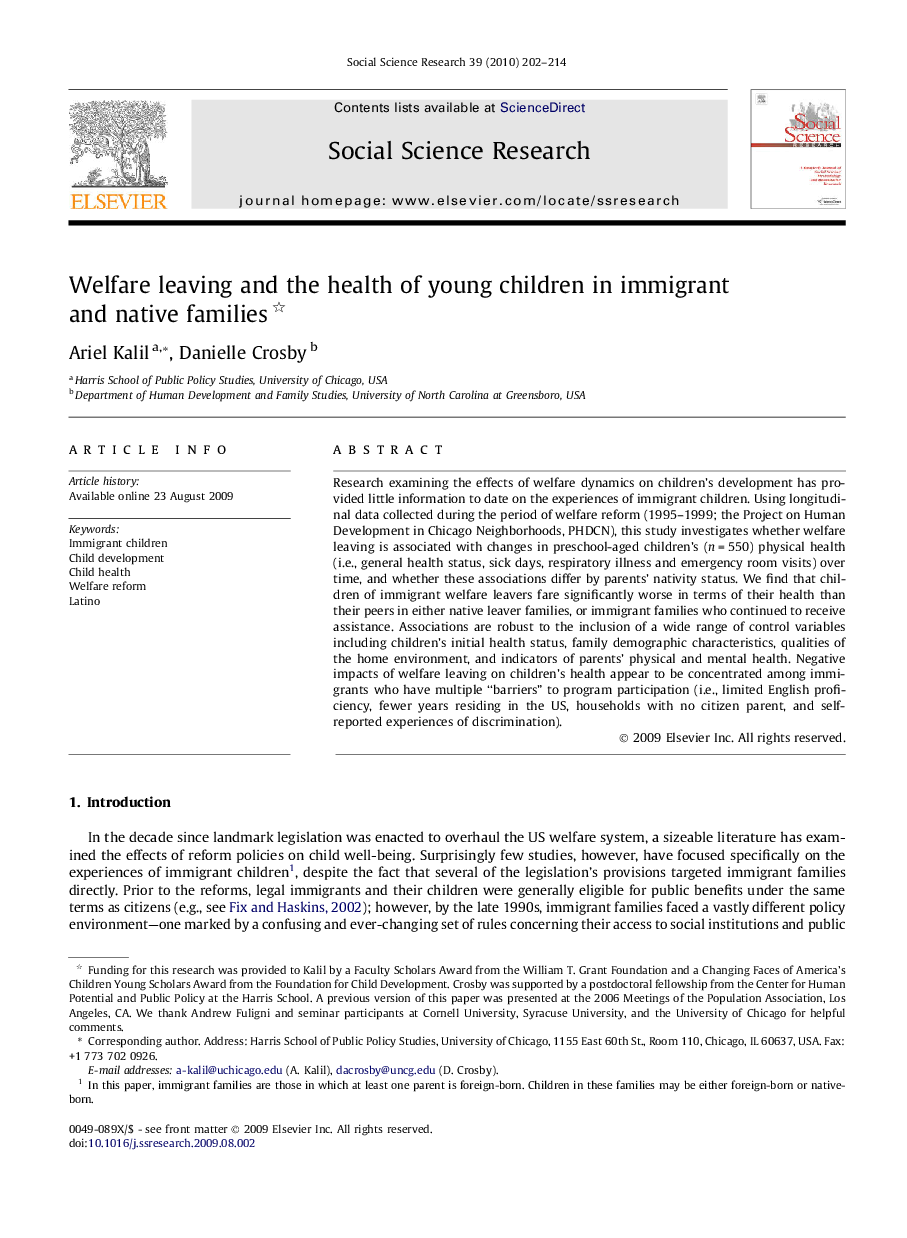| Article ID | Journal | Published Year | Pages | File Type |
|---|---|---|---|---|
| 956362 | Social Science Research | 2010 | 13 Pages |
Research examining the effects of welfare dynamics on children’s development has provided little information to date on the experiences of immigrant children. Using longitudinal data collected during the period of welfare reform (1995–1999; the Project on Human Development in Chicago Neighborhoods, PHDCN), this study investigates whether welfare leaving is associated with changes in preschool-aged children’s (n = 550) physical health (i.e., general health status, sick days, respiratory illness and emergency room visits) over time, and whether these associations differ by parents’ nativity status. We find that children of immigrant welfare leavers fare significantly worse in terms of their health than their peers in either native leaver families, or immigrant families who continued to receive assistance. Associations are robust to the inclusion of a wide range of control variables including children’s initial health status, family demographic characteristics, qualities of the home environment, and indicators of parents’ physical and mental health. Negative impacts of welfare leaving on children’s health appear to be concentrated among immigrants who have multiple “barriers” to program participation (i.e., limited English proficiency, fewer years residing in the US, households with no citizen parent, and self-reported experiences of discrimination).
